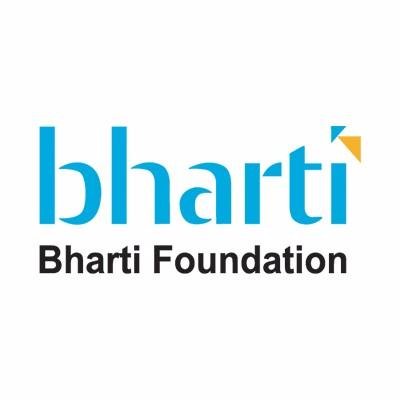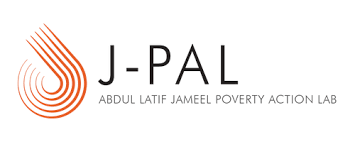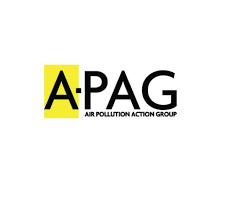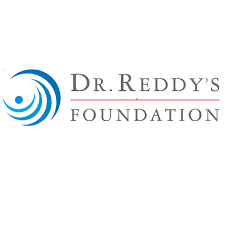
Website UNDP
Background
Diversity, Equity and Inclusion are core principles at UNDP: we value diversity as an expression of the multiplicity of nations and cultures where we operate, we foster inclusion as a way of ensuring all personnel are empowered to contribute to our mission, and we ensure equity and fairness in all our actions. Taking a ‘leave no one behind’ approach to our diversity efforts means increasing representation of underserved populations. People who identify as belonging to marginalized or excluded populations are strongly encouraged to apply. Learn more about working at UNDP including our values and inspiring stories.
UNDP does not tolerate sexual exploitation and abuse, any kind of harassment, including sexual harassment, and discrimination. All selected candidates will, therefore, undergo rigorous reference and background checks.
UNDP has been working in India since 1951 in almost all areas of human development. Together with the Government of India and development partners, we have worked towards eradicating poverty, reducing inequalities, strengthening local governance, enhancing community resilience, protecting the environment, supporting policy initiatives and institutional reforms, and accelerating sustainable development for all.
With projects and programmes in every state and union territory in India, UNDP works with national and subnational government, and diverse development actors to deliver people-centric results, particularly for the most vulnerable and marginalized communities. As the integrator for collective action on the Sustainable Development Goals (SDGs) within the UN system, we are committed to supporting the Government of India’s national development vision and priorities and accelerating the achievement of the SDGs for the people and the planet.
UNDP India’s new Country Programme (2023-2027) builds on our prior work and aims to provide an integrated approach to development solutions in three strategic portfolios:
- Strong, accountable and evidence-led institutions for accelerated achievement of the SDGs.
- Enhanced economic opportunities and social protection to reduce inequality, with a focus on the marginalized.
- Climate-smart solutions, sustainable ecosystems and resilient development for reduced vulnerability.
- South-South cooperation, gender equality and social inclusion are promoted across the pillars. The programme is supported by a framework of renewed partnerships and blended finance solutions, strategic innovation and accelerator labs, and data and digital architecture.
You are invited to join a team of future-smart development professionals to support India in achieving the national and globally agreed goals. As part of the UNDP team, your focus will be to work with diverse stakeholders to find country-specific solutions that lead to sustainable development and reach those furthest behind first.
The Government of India has accorded high priority and adopted multifaceted development strategies to promote socio-economic growth of Scheduled Tribes (STs) constituting 8.6% of the India’s total population as their human development indicators with regards to health, education, gender and other indices are well below the national average.
The Ministry of Tribal Affairs (MoTA) being the nodal Ministry for overall policy, planning and coordination of programmes for development of STs, has been pursuing the agenda of inclusive growth with Central and State governments to address the critical gaps in development of STs. Various schemes and programmes are being implemented by MoTA such as Special Central Assistance to Tribal Sub Scheme (SCA to TSS); Grant under Article 275(1) of the Constitution of India; Post-Matric Scholarship for ST Students; Conservation -cum-Development Plan for Particularly Vulnerable Tribal Groups, Grant to Aid to Tribal Research Institutes etc. for development of the STs in addition to implementation of the rights-based legislation – Forest Rights Act 2006.
Eklavya Model Residential Schools (EMRS) has been established by the Ministry of Tribal Affairs to impart quality education to ST children in remote areas in order to enable them to avail of opportunities in high and professional educational courses and get employment in various sectors. The schools focus not only on academic education but on the all round development of the students. In order to give further impetus to EMRS, it has been decided that by the year 2022, every block with more than 50% ST population and at least 20,000 tribal persons, will have an EMRS. Eklavya schools will be on par with Navodaya Vidyalaya and will have special facilities for preserving local art and culture besides providing training in sports and skill development.
MoTA also provides with Grants-in-aid under Proviso to Art. 275(1) of Indian Constitution to bridge gap between Scheduled Tribe (ST) population and others by accelerating development of STs. It supplements the efforts of State Governments and is only an additive to State efforts for tribal development for plugging critical gaps in tribal areas. One of the key interventions is towards strengthening monitoring and implementation of schemes/programmes designed for tribal development, promoting e-governance for brining development and operational effectiveness; and demonstrative innovative, scalable, integrated development solutions in tribal dominated areas.
UNDP is supporting establishment of the Central Project Management Unit (CPMU) with the Ministry of Tribal Affairs. CPMU will have a team of highly qualified experts who will be tasked to promote a holistic approach to tribal development.
Duties and Responsibilities
UNDP proposes to support MOTA with a Project Associate (EMRS and Grants) and will provide technical and coordination support to Ministry of Tribal Affairs for improved governance and effective implementation of schemes of Eklavya Model Residential School (EMRS) and Proviso to Article 275(1) of the Constitution of India.
The Project Associate (EMRS and Grants) will be part of the Central Project Management Unit and will work under the overall supervision of the Programme Lead, Tribal Development, CPMU and in close collaboration with the UNDP Programme Officer and Project Team members. S/He will ensure engagement of all direct stakeholders and delivery of project objectives, in coordination with Ministry of Tribal Affairs when needed.
- Assist in implementation of the revamped model of Eklavya Model Residential Schools to impart quality education to ST children and support in managing and updating the EMRS portal for effective monitoring of establishment and functioning of EMRSs.
- Support in coordination with National Education Society for Tribal Students (NESTS) and States on the status of construction of new and functioning of existing EMRSs.
- Assist in updating the information of data on various portals including EMRS, ADIGRAM, LIMBS, OOMF, e- Samiksha etc. and provide data analytic support for evidence-based monitoring of various schemes and programmes for tribal empowerment.
- Support in coordinating and organizing Project Appraisal Committee meetings; including review of proposals from states, follow-up for addressing deficiencies, requirement of additional information, and drafting of minutes.
- Assist in preparation of Vision Document, Annual Plan, Output and Outcome Framework etc. and drafting of various replies regarding Parliament Questions, Assurances, VIP references, Public Grievances, PMO References, RTI etc.
- Support in preparation of knowledge products, including background notes, working papers, briefings documents, presentations, good case studies etc.
- Assist in forging partnership with the academic institutions, Inter-governmental organizations, bilateral bodies, NGOs working in the areas of tribal empowerment.
Competencies
Core competencies:
- Achieve Results: LEVEL 1: Plans and monitors own work, pays attention to details, delivers quality work by deadline.
- Think Innovatively: LEVEL 1: Open to creative ideas/known risks, is pragmatic problem solver, makes improvements.
- Learn Continuously: LEVEL 1: Open minded and curious, shares knowledge, learns from mistakes, asks for feedback.
- Adapt with Agility: LEVEL 1: Adapts to change, constructively handles ambiguity/uncertainty, is flexible.
- Act with Determination: LEVEL 1: Shows drive and motivation, able to deliver calmly in face of adversity, confident.
- Engage and Partner: LEVEL 1: Demonstrates compassion/understanding towards others, forms positive relationships
- Enable Diversity and Inclusion: LEVEL 1: Appreciate/respect differences, aware of unconscious bias, confront discrimination.
Cross-Functional & Technical competencies:
Business Direction & Strategy
Strategic Thinking: Ability to develop effective strategies and prioritized plans in line with UNDP’s objectives, based on the systemic analysis of challenges, potential risks, and opportunities, linking the vision to reality on the ground, and creating tangible solutions.
Business Management
Evaluation: Ability to make an independent judgement based on set criteria and benchmarks – Ability to anticipate client’s upcoming needs and concerns.
Working with Evidence and Data: Ability to inspect, cleanse, transform and model data with the goal of discovering useful information, informing conclusions, and supporting decision-making.
Business Development
Knowledge Generation: Ability to provide managers and key stakeholders with regular feedback on the consistency or discrepancy between planned and actual activities and programme performance and results.
Digital & Innovation
Data analysis: Ability to extract, analyze and visualize data (including Real- Time Data) to form meaningful insights and aid effective decision making.
Required Skills and Experience
Education:
- High School education or Bachelor’s degree in any of the following areas Development Management, Rural Development, Social Work, Public Policy, international development, or related field.
Experience:
- Minimum 7 years of relevant experience of working in the field of tribal development and governance with high school or 4 years with Bachelor’s degree.
- Sound understanding of tribal development strategies and their functioning.
- Domain knowledge in areas like governance, convergence, tribal affairs, and social inclusion will be preferred.
- Experience in planning, designing, monitoring and evaluation of development programmes and schemes for marginalized communities.
- Relevant experience in documentation and preparation of reports on development issues
- High-level of IT/computing skills (minimum: Microsoft Outlook, Word, Excel, PowerPoint)
- Knowledge of and experience in gender mainstreaming is an asset.
- Ability to use information and communication technology as a tool and resource.
- Willingness to travel when required.
- Excellent knowledge of written and spoken English and Hindi is essential.
Language Requirement:
Excellent knowledge of written and spoken English and Hindi is essential.
To apply for this job please visit estm.fa.em2.oraclecloud.com.





